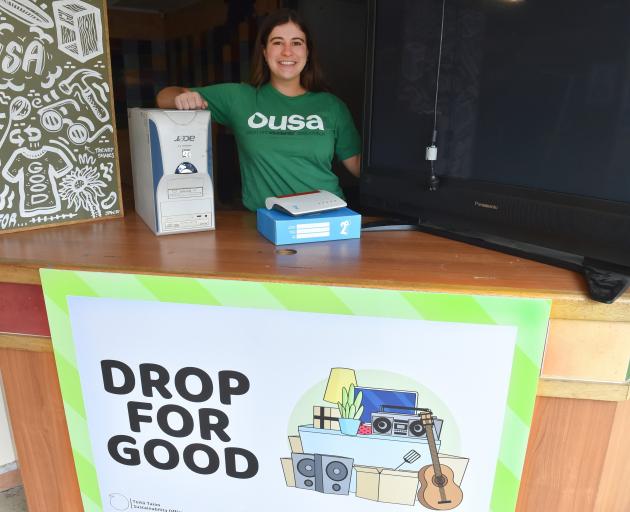
Those discarded lamps and microwave ovens in Castle St are part of a larger problem.
About 90% of Dunedin’s e-waste — the term for discarded electrical equipment and devices — is not getting recycled properly.
E-waste is the fastest-growing waste stream in developed countries and experts are calling for a more urgent solution to deal with the waste, which threatens to leach toxins into the environment.
Cargill Enterprises chief executive Geoff Kemp said government statistics suggested New Zealanders discarded 20kg of e-waste per person, per year — and the majority of this was not being recycled.
Mr Kemp estimated Dunedin processed less than 10% of its total e-waste. Based on a population of 115,000, that was 2300 tonnes of e-waste per year, and only 140 tonnes of this was getting processed.
‘‘It’s a global issue and Dunedin is no exception.’’
The Ministry for the Environment has put the issue down to the uneconomic nature for businesses of disassembling and reusing products.
The ministry recognises the recycling process would be manual for businesses, so it seems uneconomical given the cost of the labour involved and the prices offered for dismantled materials.

‘‘New Zealanders get it and understand that it’s not right to dump electronic goods in landfills... People simply don’t know where to take their surplus equipment, or who to trust in ensuring that the recycled materials are used productively,’’
The cost to consumers of recycling was a real deterrent, as many people thought the equipment they paid thousands of dollars for a few years ago should still be worth something, and felt recyclers should pay them to take it, Mr Zwimpfer said.
EDay consumer preference research from 2017 showed that although 80% of people preferred to recycle e-waste, only 9% were willing to pay to recycle it.
Aside from e-waste going to landfill, storing it or selling it yourself, the main way to dispose of e-waste in Dunedin is via the Green Island Transfer Station rummage centre for a small fee, where it is picked up and processed by Cargill Enterprises.
Other recycling options include schemes such as Re:mobile, run by the New Zealand Telecommunications Forum (TCF). People can take their used phones to Re:mobile drop-off points around the country to recycle, again for a small fee.
University of Otago sustainability manager Ray O’Brien said the university had also identified e-waste as a problem, and had been working to minimise it.
The university sent 17 tonnes to be processed through Cargill in 2020, Mr O’Brien said. So far this year, only nine tonnes had been sent, mainly because of efforts to minimise the amount of waste.
The students themselves have initiated a more sustainable system. The Otago University Students’ Association (OUSA) held a drop-in recycling event recently to offer an alternative to the skips on streets.
OUSA vice-president Emily Coyle said things recycled by students included televisions, microwaves, kettles, toasters and lamps, which would be sold to students next year.

Product stewardship would be a government scheme that made suppliers of electronic products responsible for the safe disposal/recycling of e-waste, at no cost to the consumer.
Mr Kemp said New Zealand was ‘‘shuffling its feet’’ on the issue of product stewardship, and needed to introduce it with much more urgency.
The Government has announced e-waste as a priority product for establishing regulated product stewardship schemes under the Waste Minimisation Act 2008, but has not acted on it yet.
Other priority products include plastic packaging, tyres, agrichemicals, refrigerants and farm plastics.












